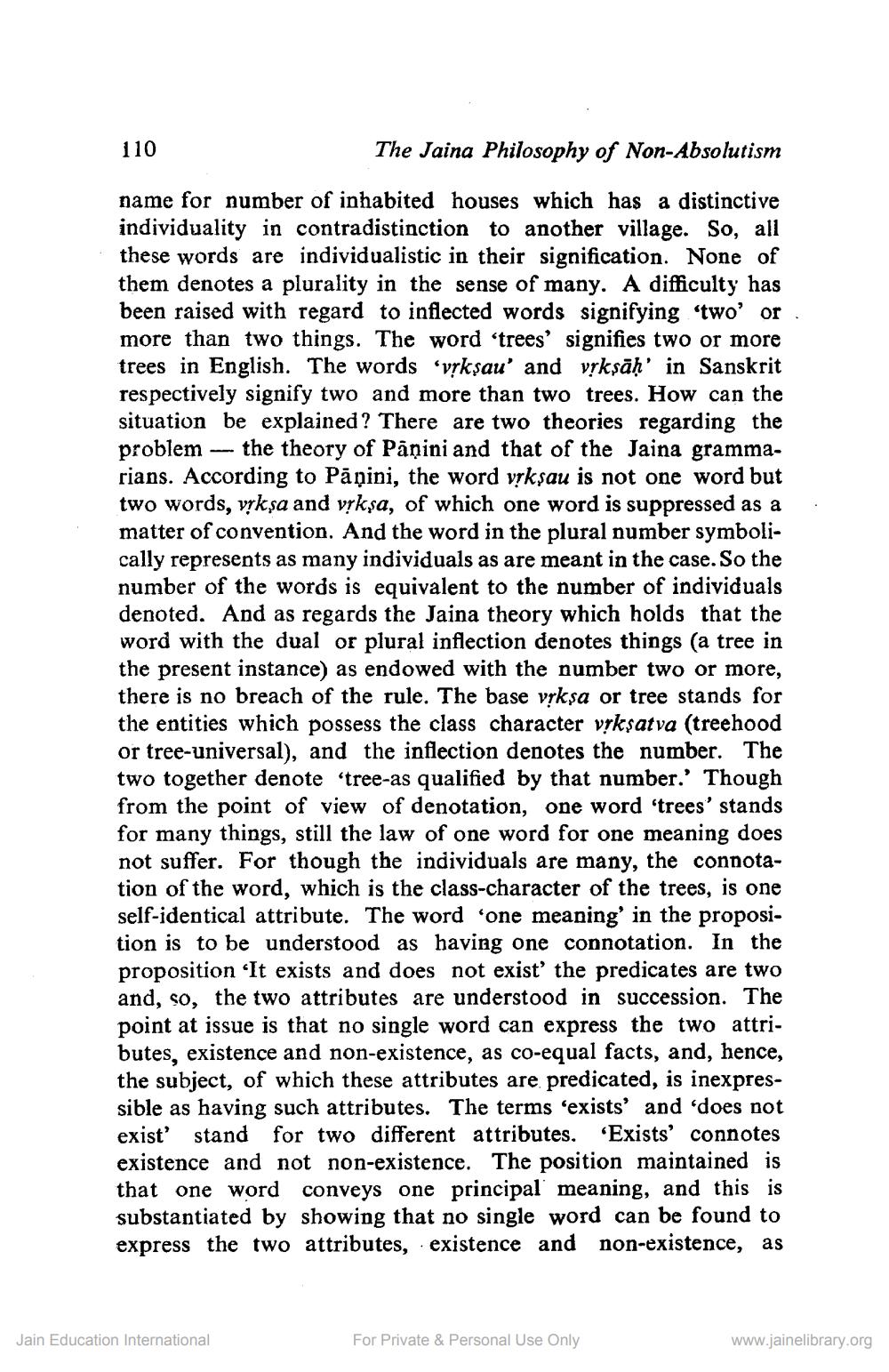________________
110
The Jaina Philosophy of Non-Absolutism
name for number of inhabited houses which has a distinctive individuality in contradistinction to another village. So, all these words are individualistic in their signification. None of them denotes a plurality in the sense of many. A difficulty has been raised with regard to inflected words signifying “two' or more than two things. The word 'trees' signifies two or more trees in English. The words ‘vksau' and vrkṣāḥ' in Sanskrit respectively signify two and more than two trees. How can the situation be explained? There are two theories regarding the problem - the theory of Pāņini and that of the Jaina grammarians. According to Pāņini, the word vrksau is not one word but two words, vīksa and vykşa, of which one word is suppressed as a matter of convention. And the word in the plural number symbolically represents as many individuals as are meant in the case. So the number of the words is equivalent to the number of individuals denoted. And as regards the Jaina theory which holds that the word with the dual or plural inflection denotes things (a tree in the present instance) as endowed with the number two or more, there is no breach of the rule. The base vrksa or tree stands for the entities which possess the class character vykşatva (treehood or tree-universal), and the inflection denotes the number. The two together denote 'tree-as qualified by that number.' Though from the point of view of denotation, one word 'trees' stands for many things, still the law of one word for one meaning does not suffer. For though the individuals are many, the connotation of the word, which is the class-character of the trees, is one self-identical attribute. The word 'one meaning in the proposition is to be understood as having one connotation. In the proposition 'It exists and does not exist the predicates are two and, so, the two attributes are understood in succession. The point at issue is that no single word can express the two attributes, existence and non-existence, as co-equal facts, and, hence, the subject, of which these attributes are predicated, is inexpressible as having such attributes. The terms 'exists' and 'does not exist' stand for two different attributes. "Exists' connotes existence and not non-existence. The position maintained is that one word conveys one principal' meaning, and this is substantiated by showing that no single word can be found to express the two attributes, existence and non-existence, as
Jain Education International
For Private & Personal Use Only
www.jainelibrary.org




